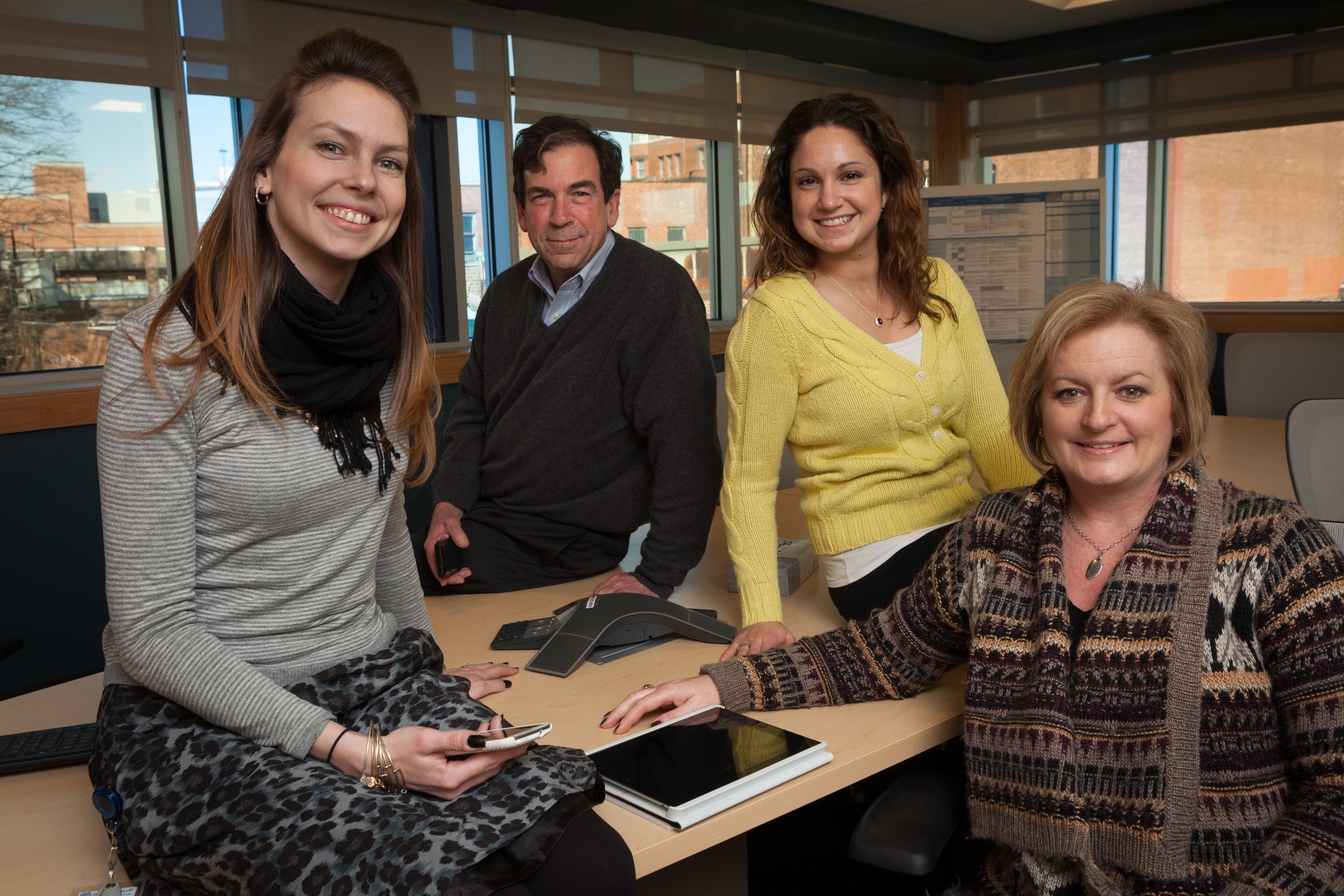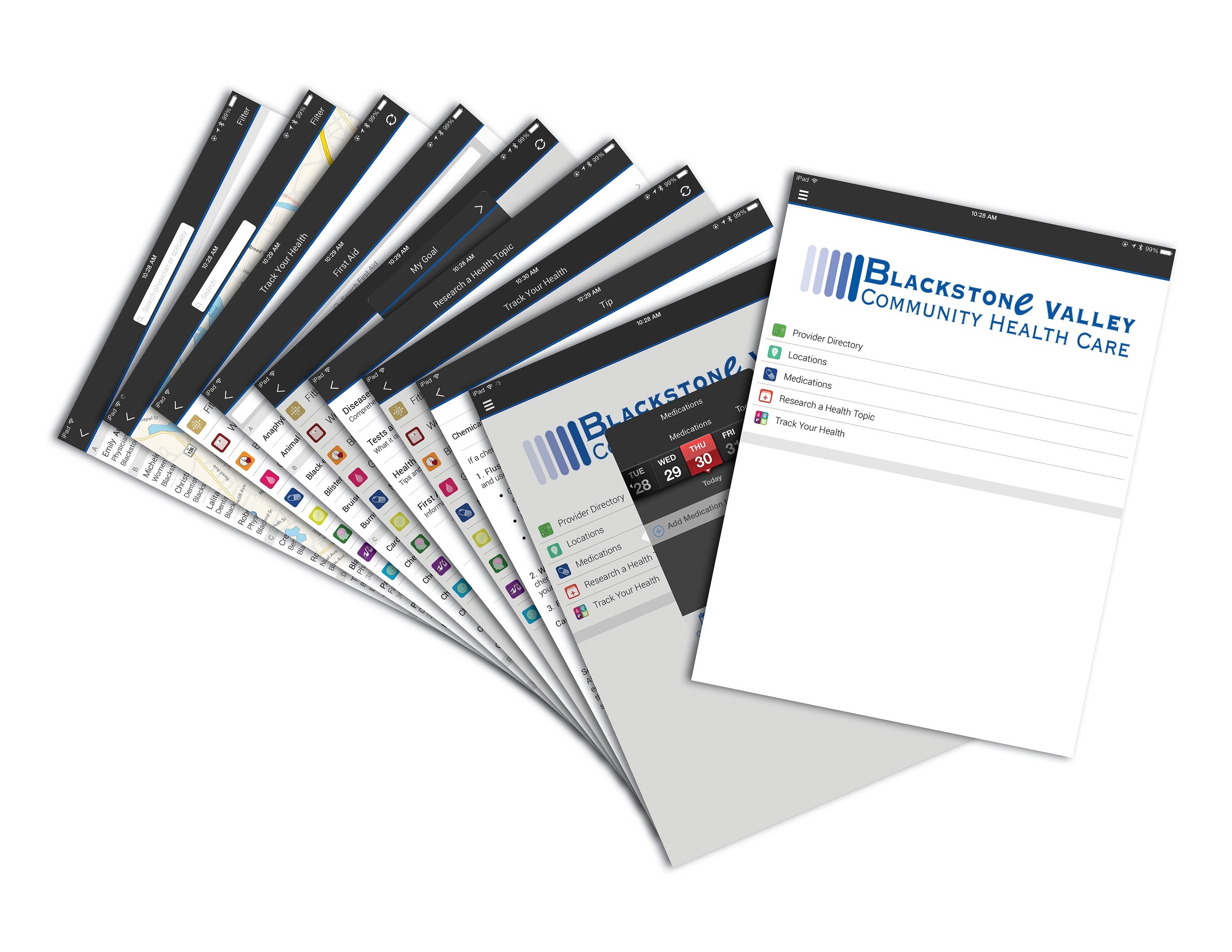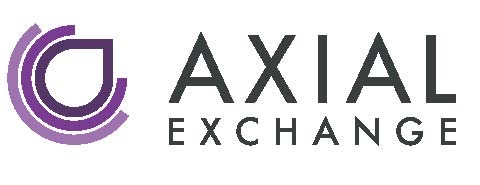Blackstone Valley offers patient engagement app for smart devices
Community health center leads the way in Rhode Island in health IT innovation
When will the state of Rhode Island, by changing its contracts with Neighborhood Health Plan in Rhode Island, institute a shared-savings contract with the actual providers, the community health centers? Now, most of the savings achieved by providers go back to the state or to Neighborhood.
PAWTUCKET – The first customer engagement app offered by a health provider in Rhode Island – BVCHC, or Blackstone Valley Community Health Care – can now be downloaded for free on iPhones, iPads and Androids.
The new app, built by Axial Exchange, Inc, a Raleigh, N.C. firm, places the community health center at the forefront of adoption and use of health IT innovations in the state – and in New England.
Blackstone Valley has already implemented a sophisticated integration of health IT data at the point of care, bending the medical cost curve by more than $9 million in the last two years. It is one of the top-rated patient-centered medical homes in the R.I. Chronic Care Sustainability Initiative in terms of achieving health outcomes.
Blackstone Valley has built its own health information exchange and is warehousing data from two other community health centers. It is also currently working with Care New England and Memorial Hospital to link its IT health network for its patients that use urgent care centers in Pawtucket.
“We’re already a leader in achieving costs savings, and I think this is going to step that up a bit as a result of having more engaged patients,” Ray Lavoie, executive director at Blackstone Valley, told ConvergenceRI in a recent interview at the community health center on East Avenue, talking about the launch of the new customer engagement app for Blackstone’s 13,300 patients.
“The more engaged patients are with their own health, the more inclined they are to follow doctors’ orders, and if they follow doctors’ orders, their health will improve and costs will decline,” Lavoie said, explaining the value proposition of the app.
Christine M. Grey, Blackstone’s COO, agreed, saying that the primary focus is on improving patients’ health. “We’re hoping that our results will speak for themselves, and our results will be become a best practice because of the way it benefits our patients and reducing their costs.”
Lavoie, who said his team has been working on development of the new app since July, called it the result of the convergence of two major trends – the rapid conversion to smart phones and the “jet stream” in achieving meaningful use in health IT.
“There are patient portals, and we have a patient portal, but the uptake is slow. Not everyone has a personal computer,” Lavoie said. “But everyone seems to have a smart phone.”
The new BVCHC app lays the groundwork for Blackstone Valley to prepare for Meaningful Use Stage 3 – the program administered by the Centers for Medicare & Medicaid Services for electronic health records, guidelines and standards to be met by health providers in 2017.
Under these standards, the data captured by the customer engagement app would be synched with Blackstone Valley’s EMR system and with its data warehousing.
“It gives us a few years to work on getting the data from this app into our EMR and even our data warehouse,” Lavoie said.
And the vendor, Axial Exchange, Grey added, “is very, very interested in working with us.”
What the app does
Grey ran through the different features on her iPad forConvergenceRI.
The first feature is a “Provider Directory,” listing all the caregivers – doctors, nurse care managers, dentists, physician assistants, and behavioral health specialists – with their address, phone number and fax. The patient can add the information to their own list of contacts on their smart phone.
A second feature, “Locations,” links the addresses for all Blackstone Valley facilities to a Google maps application, allowing patients to get directions from wherever they are.
The third feature, “Medications,” enables a patient to track medications, with both a calendar and reminder feature, and a way for patients to take a screen shot of what the medication looks like.
A fourth feature, “Research a Health Topic,” allows a patient to access answers to questions about health online, tying into the Mayo Clinic’s extensive library, answering questions online about diseases and conditions, tests and procedures, health tips and first aid.
A fifth feature, “Track Your Health,” allows patients to track their own weight, blood pressure, glucose, medications, and cholesterol, as well as symptoms such as headaches, mood changes, and details about pregnancy.
Everything in the app can be downloaded in English, Spanish or Portuguese.
“It’s very intuitive,” Grey said. “It takes about 20 seconds to download. It’s free.”
From the vendor’s perspective
As the health care delivery system moves toward new payment models – bundled payments and accountable care organizations – the providers are the ones that are bearing the risks for outcomes, explained John Casey, co-founder and vice president of Operations and Finance.
“Providers have to bring the patient to the table in these engagements, and change the behaviors that have been contributing to their illness in the first place,” Casey said.
Casey and Matt Mattox, co-founder and vice president of Product Development and Marketing, spoke recently with ConvergenceRI about their new customer engagement app.
Axial began by marketing its product directly to large hospital systems, but that strategy is changing, as the new partnership with Blackstone Valley demonstrates. “Where we believe the opportunity is in the primary care marketplace – with an emphasis on high-quality primary care networks,” said Mattox.
The Axial website touts its team as has having brought disruptive innovation to financial services and enterprise software. Mattox, for instance, formerly led the global independent software vendor group for Red Hat Enterprise Linux and led the creation of Red Hat’s open source initiative, Red Hat Exchange.
The next target is health care. “We are redefining the tools you need to manage your care on a day-to-day basis, such as your weight, your blood pressure your glucose,” Casey said. “And, we are providing the information you need to make sense of that data,” pointing to Axial’s partnership with the Mayo Clinic library as a resource for patients to find answers to their questions. “Patients are armed with information, to be much better informed when they have conversations with their health care providers.”
Blackstone Valley is Axial’s “beachhead” into the community health center market, according to Casey and Mattux. The firm has been working with hospitals and health systems in New Jersey, Florida, Colorado, California and South Dakota.
There is a general realization that patient-centered data is critical to the future success of health systems that will be paid for their ability to keep people well, and not for fee-for-service, Casey and Mattux said.
The difference in Axial’s approach is its focus on smart phones, with the patient as the center of the universe, and not a data warehouse. Many large hospital systems and their electronic health records infrastructure, the Axial co-founders continued, was done before the smart phone revolution, so their model is to have all the vendors integrated with them.
“We want to support open integration and open interactivity with third-party tools, eventually building in a data repository,” Casey said.








